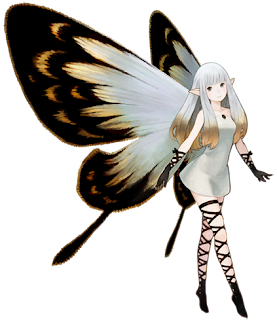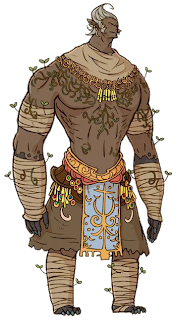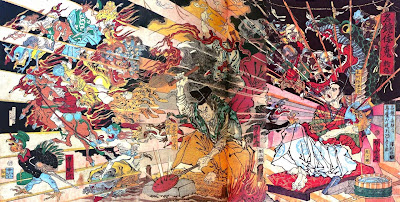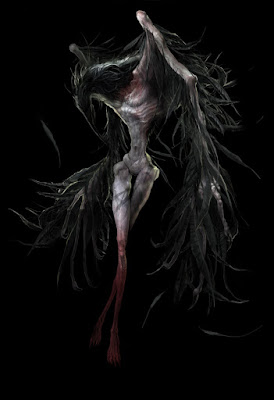It occurs to me that jinetero is a perfect term for adventurers, even if it doesn’t perfectly match the real-life contemporary definition. Anyway, here’s the lowdown on some of the player-adjacent factions in La Habana.
Red Hibiscus Society
A social club/trading consortium/gang based in La Habana. Their affinity for bypassing the Emir’s taxmen has made them natural allies of the Castilians of La Florida.
The chief of the Red Hibiscus Society is Yusuf, a colossal ex-bandit who has given up direct robbery for the relative ease and comfort of running a medium-sized crime syndicate. He always smells of violet water, and is rarely seen outside of his bath–he’s had a porcelain clawfoot tub installed in the Red Hibiscus Society Hall where he conducts most of his business so he doesn’t have to get out even as he works.
The Society regularly employs vagrants, vagabonds, and soldiers-of-fortune to carry out its interests, both legitimate and illegitimate, with at least one layer of plausible deniability.
- Deliver a sealed cask to the bar next to the Castilian embassy by the Docks. Expect trouble on the way, and do not open the barrel.
- Retrieve a package from the House of Honey and Salt, and deliver it at a dead drop location at the Royal Park. Wash your hands thoroughly with hot soap and water afterwards, do not breathe heavily around the package, and do not get it wet.
- Yusuf’s step-daughter is attending the Emir’s birthday and he suspects some pencil-necked egghead at the College is going to ask her to attend it with him. Explain to him why this is not a viable decision, but don’t do anything worse than breaking his knees.
- That bastard Admiral is holding out on Yusuf–the Castilian has, through various semilegal channgel, acquired Gran Morado, violet water made from the purest and most fragrant violets, said to restore vigor lost to age, bring good luck, grow your hair back, whiten your teeth, dispel melancholy, etc etc, but now he won’t sell it to Yusuf as promised. Help the Society seize some La Florida-bound shipments of fine liquor to help the Admiral see reason.
Saints of Honey and Salt
A religious order of sybaritic assassin-surgeons who operate out of hospital-brothel-temple-laboratories called Houses of Honey and Salt. They’re the best doctors in town, but also the best murderers-for-hire, so everybody needs them and nobody trusts them. Their influence is mostly a network of debt and favors–if you don’t owe something to the Saints, you owe something to someone who does. Everyone agrees they are Up To Something, but nobody really knows what it is.
- The Saints need a jaguar for their experiments. Definitely healthy and whole, preferably alive, but with a minimum of injuries if that isn’t possible.
- One of the Saints makes weekly rounds in Old Habana, giving free care to the sick. An upstart guild of sawbones have begun to threaten her and interfere with her work–guard her this upcoming Sunday.
- A deliriously ill patient undergoing an experimental treatment has broken out of the House of Honey and Salt. Find them before
the metamorphosis completestheir illness gets the best of them. - There was a pirate raid out east two days ago, and the Saints are expecting an influx of patients. Secure an emergency shipment of bandages and laudanum from the Castilians–and you don’t have to be friends with them afterwards.
The Klatch
A loose society of brujas, brujos, shamans, sorcerers, exorcists, theologians, and philosophers who frequent La Habana’s coffee houses and salons and who maintain correspondence with practitioners across New Barbary. They tacitly and informally police the supernatural community (such as it is) of La Habana, ensuring that devils, the dead, and hostile gods cannot hunt unchecked by more mundane authorities.
- The La Habana chapter of the Klatch believes a devil has taken up residence in the city. A reward of 50 pesetas to anyone who brings information leading to its banishment.
- The Emir’s favorite dancer has been possessed by a malicious spirit, and it’s taking most of her caretakers’ efforts just to keep it under control. Take a trip out to the Hungry Grandmother’s shrine and ask her for a purgative.
- An ambitious young thief has found a a djinni (again). His first wish was for a king’s fortune and his second was for 100 wives. Since you can surely imagine how well that’s going, get that brass ring off of his finger before he causes another international incident.
- The New Barbary Trading Company of Castile wants to build a warehouse and offices on what the Klatch believes to be the tomb of Blood Dews Upon The Lilies, a sainted ancestor liable to wake up again if disturbed. They aren’t listening to a bunch of witches, but perhaps you can find a way to be more persuasive?
The Souk
Almost any merchant in the Souk will part with goods or services in return for a favor. You can buy most things there, but here are a few of the odder services you can get:
FOOD
- a nice hot meal. 10 pesetas. A hot meal and a rest fully heals your HP, though you might have lingering injuries, depending.
- ingredients. 5 pesetas. If you have the skills, you can cook a hot meal without paying a premium for it, and you can do it out in the jungle or bush if you bring the right equipment.
- snack. If you take 10 and eat a snack, you recover 1d6 HP. You can only do this 1/day OR 1/genuine hazard faced.
TRANSPORT
- emperor ghost spider. The most reliable form of transportation in New Barbary, these colossal spider spirits are bound and trained to carry passengers and cargo. Their castle-sized carapaces are hollowed out: the abdomen holds lodging and cargo storage, while their handlers work in the thorax and head, where the blood of their animal sacrifices propagates through channels carved into the spider’s chitin, and where the handler’s soothing prayers can more easily heard. The largest emperor ghost spiders can traverse across the shallower parts of the Caribbean, their legs long enough to reach the sea floor.
- magot porter. New Barbary macaques are big enough to stare a draft horse in the eyes without getting off all fours. They aren’t particularly fast, but they are strong enough to carry a person and all of their gear, and can traverse dense jungle and mountainous terrain. Overall reliable, handy, and peaceable, but if you do manage to anger or spook them they can pull your arms off without trying very hard.
- sedan chair. Mostly used in the city of Otra Tétuan. They have a faintly sinister reputation, since devils and the dead can use them to travel unseen, and powerful brujas will travel on sedan chairs carried by zombis. The spouses of Dead Ixe are infamous for being carried by their husband’s mummified servants. Normally, though, it’s old money, D-list royalty, and regular joes willing to pay a little extra for some swift and discrete transportation.
- cars. rare, expensive, loud, smelly. They drive spirits crazy, and most cars require apotropaics from front bumper to back just to keep ambient divine rage from shutting it down. Beloved by the nouveau riche and Flowerland industrialists. They can be rented.
HELP
- Competent mercenaries and guards will work for 50 pesetas a day, plus danger pay.
- Hooligans, desperados, and ne’er-do-wells will work for 15 pesetas a day, and might try to squeeze danger pay out of you if they think they can get it.
- Minor ghosts and spirits will work for 50 pesetas in sacrifices a day, though they are more erratic than the living and might demand further favors.
- Godlings, loas, orishas, and the like don’t really have a pay rate–you have to negotiate on a case by case basis, and you usually have to find a medium in good standing with the entity to want to call on first.
















